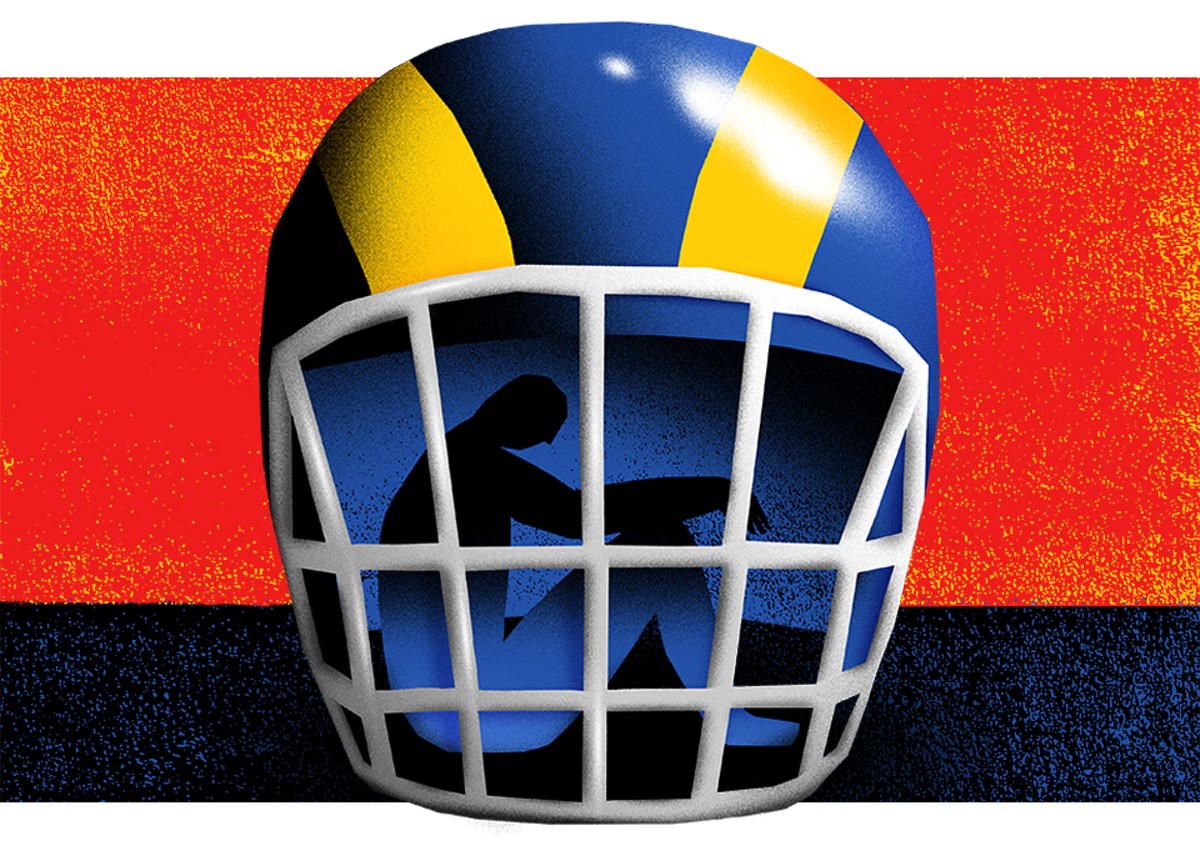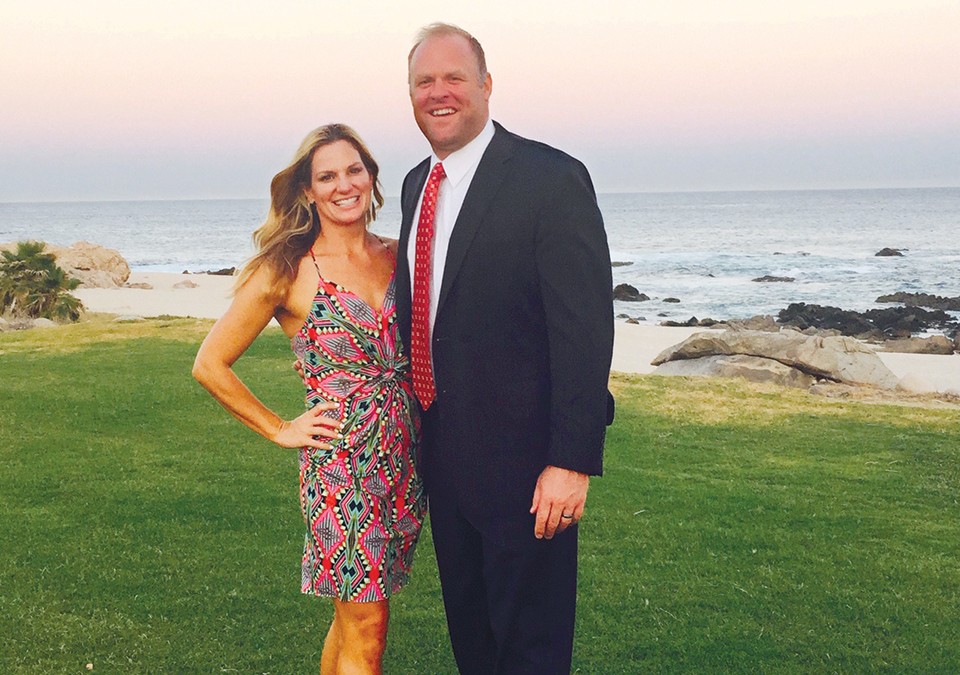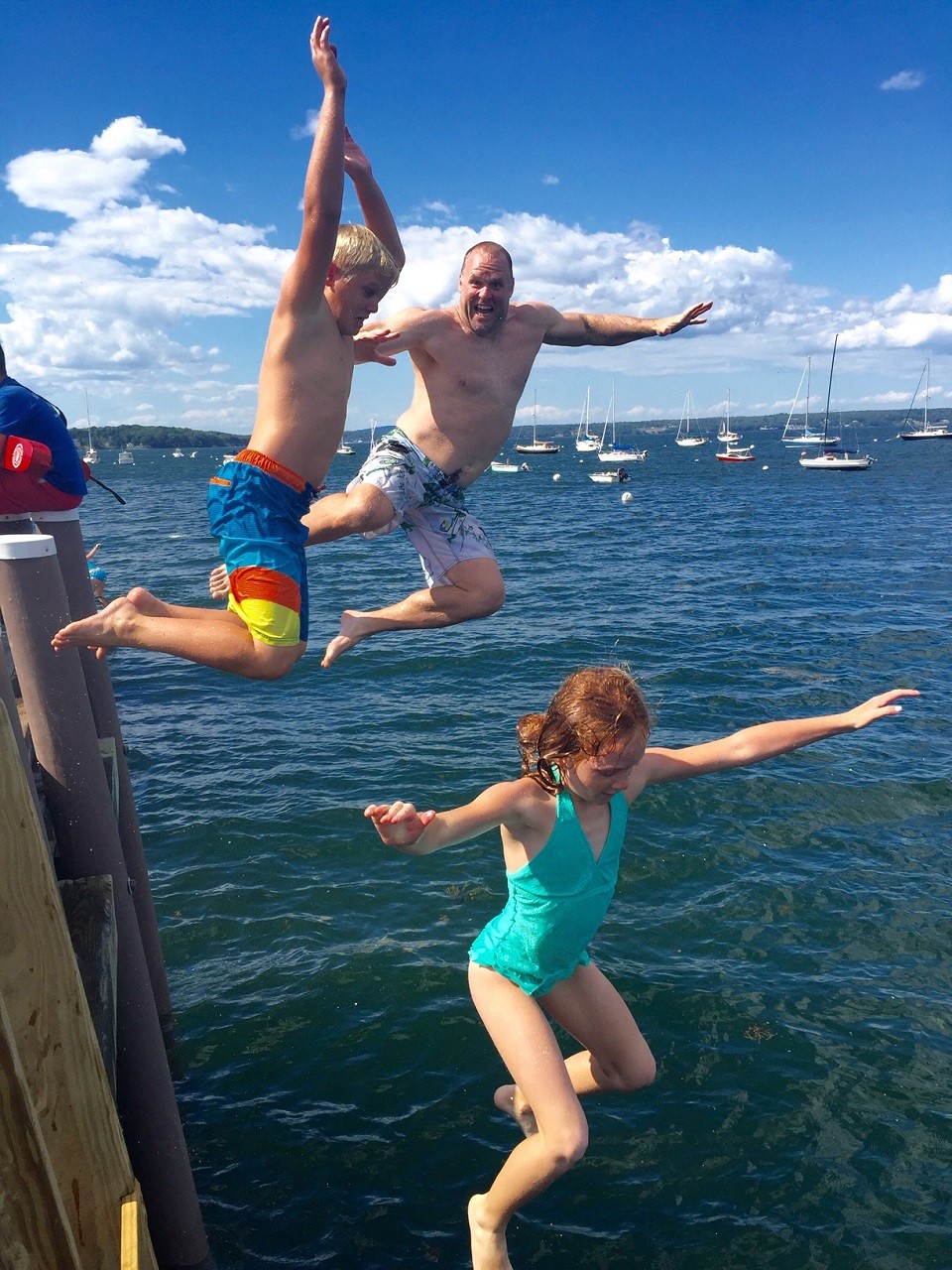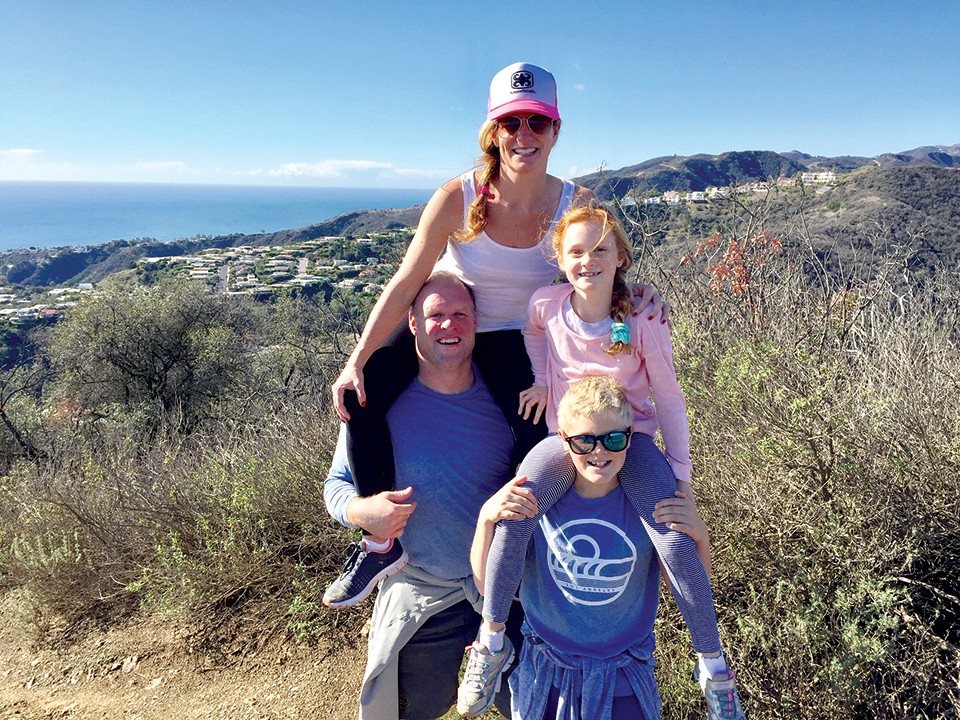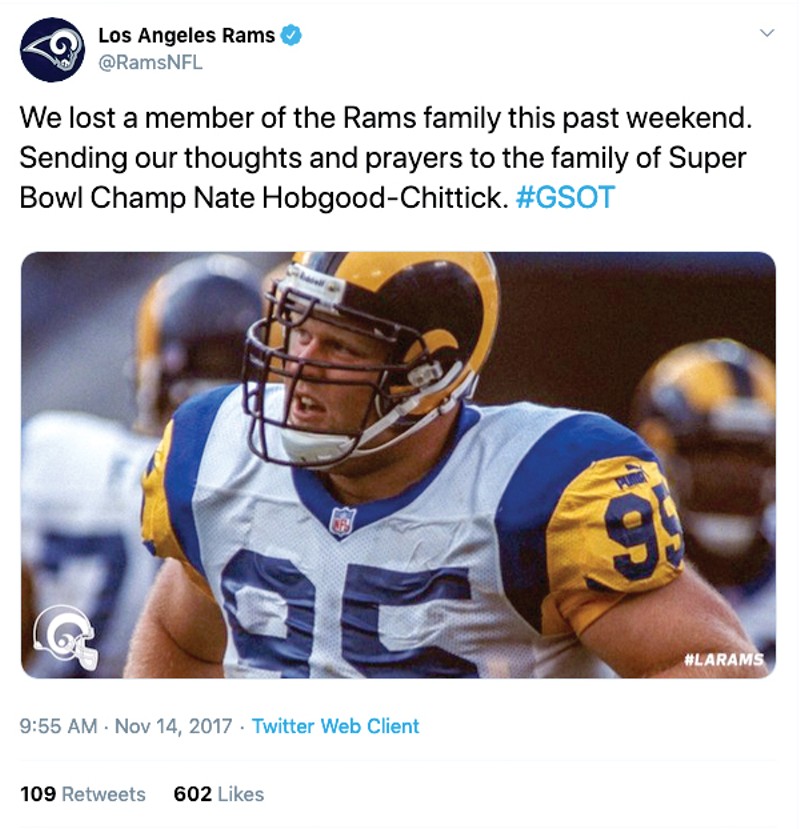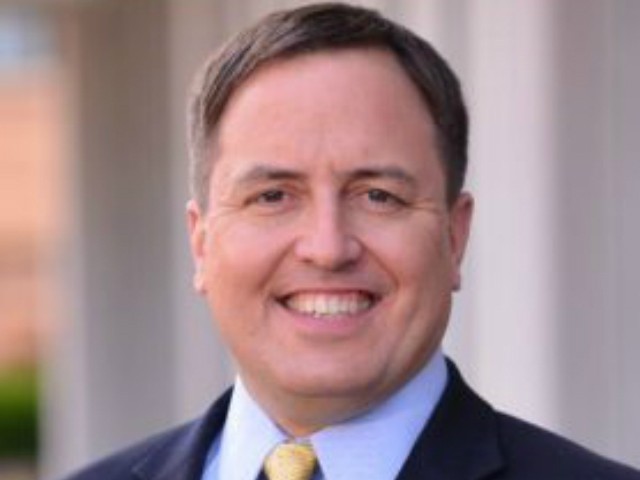By the time Nathan Hobgood-Chittick was a middle school student in the mid-1980s in Orno, Maine, he was already skilled at making a persuasive argument.
"Mom, I would think you of all people would want me to play football," Hobgood-Chittick said one day.
Mary Hobgood recalls that she of all people was certain she did not want him to play football. At the time, she was a professor of religious studies at the University of Maine and taught social ethics. In that field, she discussed the fossil fuel, food and beverage, and corporate sports industries, which she thought were "based on making profit without limits, for relatively few investors, and nothing is barred on the way to making those profits."
Decades before there was a national conversation about a concussion crisis among players, Mary viewed the National Football League as an especially bad actor in American society.
Her son, however, appealed to her sense of social justice. Before the family moved to Maine, Hobgood-Chittick had attended a predominantly black magnet elementary school in Philadelphia while Hobgood was a graduate student at Temple University and her husband, Tom Chittick, served as a Lutheran minister at the University of Pennsylvania. Mary says Hobgood-Chittick, the oldest of her two boys, was "always attracted to the movers and shakers" and would come home from school crying because he wasn't black.
That's part of why he wanted to play football. Mary was adamant that he would not.
"There is no way you're going to play football," she recalls telling him. "It's a dangerous sport."
But Hobgood-Chittick sensed an opening in her defense; his mom was also concerned about inequality.
"Soccer is for white kids," he told her, but "football is for everybody."
And so the parents signed a permission form.
"I was much more supportive, because I was much more ignorant, ignorant of the dangers," Tom says now.
In one sense, it proved to be the right decision: Hobgood-Chittick had trouble reading, so "football meant even more to him, because he found success on the field in a way that he wasn't in the classroom," Mary says.
He became a hometown hero as a high school defensive end and tight end in Allentown, Pennsylvania, which led to a scholarship at the University of North Carolina. After college, he bounced around the NFL before finally landing a spot with the St. Louis Rams. Head Coach Dick Vermeil remembers Hobgood-Chittick as likely the hardest-working player on the 1999 Super Bowl championship team that became known as "the Greatest Show on Turf."
This season marks the twenty-year anniversary of that team, but the memories in St. Louis are tinged with anger and loss. In 2016, Rams owner Stan Kroenke moved the team back to its former home, Los Angeles, leaving behind an empty stadium and jilted fans.
Hobgood-Chittick later moved to Los Angeles as well, but he too is now gone. And so, at this twenty-year marker, it's worth contemplating whether Hobgood was right when she taught her college students the NFL was a league without limits.
She believed then, as she believes now, that football is a sport that "chews up healthy young men and spits them out."
Before the 1993 school year at UNC, Jeff Saturday was standing with other football recruits in a building near the stadium when he looked out the window and saw a young man in the parking lot who "was just broken down and crying."
"He's hugging and kissing his mom and dad and his brother repeatedly; he's kind of going back and forth," recalls Saturday, who didn't even like to hug. "And I'm like, 'This dude. I can't believe this.'"
It turned out that the emotional guy, Hobgood-Chittick, would be his college roommate for the next five years.
"It was comedy from the start," Saturday says.
Hobgood-Chittick was moving away from a supportive family and community. On offense and defense, he helped lead William Allen High School to the state football championship in 1992. At the grocery story, people would stop his mom and ask, "Are you the mother of the football player?" she recalls. "The football player."
Rich Sniscak, then Allen High's head football coach, remembers him vividly.
"Nate's one of those special people that comes along very seldom in a coach's career," he says. "The thing that sticks out the most about Nate is he was always questioning 'Why?' because he always wanted to be better."
That could mean discussions about how they were training in the weight room or the coach's offensive and defensive philosophies.
Sniscak, whose father was also a coach on the team, describes Hobgood-Chittick as "an above-average athlete; he wasn't elite by any stretch of the imagination, but he was extremely dedicated to being better — whether it was in the weight room, learning technique, studying the playbook — whatever it took for Nate to get an edge, he was willing to make that sacrifice to do it."
At UNC, Saturday and Hobgood-Chittick battled every day at practice on the opposing offensive and defensive lines, only to go back to their room and spar in political and philosophical debates. Hobgood-Chittick leaned liberal; Saturday leaned conservative.
"It could start out in a real peaceful conversation and turn into a screaming match and then back to a peaceful conversation — let's hug out and we're going to go to bed, shut-it-down type thing," Saturday says. "It wasn't just words. He was a man of strong conviction, and I think that's why so many guys cared so much about him; he was real."
Hobgood-Chittick could also be the life of the college party. At one shindig hosted by members of the swim team, he put an empty Coors Light box on his head and started dancing to Michael Jackson.
Kelsey Durkin, a swimmer, saw this 305-pound man groovin' and thought, "Who is this guy?"
Together in her room, he spotted the "Serenity Prayer" (God, grant me the serenity to accept the things I cannot change, courage to change the things I can, and wisdom to know the difference) hanging on the wall. Hobgood-Chittick told her, "I live my life by that."
"That's a really weird way for a meathead to talk," Kelsey recalls thinking.
In a television interview years later, Hobgood-Chittick said of meeting Kelsey, "It was like seeing an angel."
The two started dating.
When Hobgood-Chittick went home to Allentown, Mary Hobgood would make "pies and cakes, which I normally did not do, as treats" for her son.
Usually, she cooked healthy food. But at the meals during college breaks, she could tell that her 6-foot-3-inch son, who had been skinny in high school, was continuing to fill his plate even though he was full.
"I would see him force-feeding himself at our dining-room table, and I was horrified. And I said, 'Nathan, what are you doing?' And he said, 'Don't worry, Mom, I can lose the weight,'" Mary recalls.
Other players were on a similar diet, and Hobgood-Chittick needed to stay big in order to be competitive on the field. In 1994, when he was a freshman, the National Institute for Occupational Safety and Health released a study commissioned by the NFL Players Association looking at the rate and cause of death among former players. The researchers found that defensive linemen had a 42 percent higher risk of death from heart disease compared to men in the general population.
At UNC, Hobgood-Chittick had a bigger impact on the practice field than in games. During his freshman year, his roommate Saturday recalls, the team was running around campus when he caught a senior "not running the way we were supposed to, and he challenged him in front of the whole team, and they got in a fight ... because he was like, 'That's our integrity, that's our character.'" Afterward, the other player admitted that Hobgood-Chittick was right.
He earned respect from teammates for the "never skip a rep" attitude despite the fact that he played less than the stars around him. Disappointed that he wouldn't be starting his senior year, Hobgood-Chittick, who majored in communications and minored in African American studies, considered quitting but decided to stick with the sport.
"I stopped focusing on football and just focused on me being the best person I could be," Hobgood-Chittick told the Morning Call, a newspaper covering Allentown. "I want to be a good, respectful person; I want to be a good friend ... God has a place for me, and he is telling me to just worry about myself and things will take care of themselves."
During his senior year, a New York Giants coach scouted a pair of North Carolina star defensive linemen, Vonnie Holliday and Greg Ellis. But the coach also noticed Hobgood-Chittick, according to the Hartford Courant. Holliday and Ellis were drafted in the first round in 1998 and went on to successful NFL careers. Hobgood-Chittick did not get drafted but signed with the Giants. He was inactive for the first four weeks of the season, then cut and signed to the team's practice squad. Then the Indianapolis Colts signed him in November, but he did not play in a game for the remainder of the season.
Despite his own tenuous standing with the Colts — he had never played in an NFL game — Hobgood-Chittick wanted to help out his former roommate who had also not been drafted. So he visited the office of Bill Polian, the Colts president, who led the Buffalo Bills to three Super Bowls and won multiple NFL Executive of the Year awards.
"I had no footing at all with that franchise, so I stood outside Polian's door in my dirty sweats, saying a prayer," Hobgood-Chittick told Sports Illustrated. "I walked in and said, 'There's a guy selling electrical supplies in Raleigh right now who whipped all those first-round draft choices at North Carolina every day.' Polian looked at me and said, 'I love it. Let's get him in here for a workout.'"
Saturday went on to spend thirteen seasons in the league and made six Pro Bowls. His name is in the Colts Ring of Honor. Last year, he was nominated for the Pro Football Hall of Fame.
"There are not many people in the world who would go to bat for you like that — especially in the position he was in," Saturday says. "He was not in a position of leverage."
It did not work out as well for Hobgood-Chittick. The Colts released him before the 1999 season.
Rams Head Coach Dick Vermeil had noticed Hobgood-Chittick during a scrimmage with the Colts and decided to reach out after the Colts cut him.
"When he called me, he said, 'Nate, I've just got done with practice and I've been thinking about you. You've got a real good opportunity here. We'd like you to be a part of this team,'" Hobgood-Chittick told the Morning Call. "The whole thing really stuck out in my mind because no one had showed me that kind of consideration elsewhere."
Vermeil recalls that he "almost immediately started developing a fondness and respect for him, because he was one of those extremely high-effort guys no matter what you were doing. He had a hard time going slow on a walk-through," a non-contact practice held the day before a game.
While with the Rams, Hobgood-Chittick spent six hours each week volunteering at a crisis hotline for suicide intervention, according to the Morning Call.
Also a staunch Democrat, he could never figure out why Vermeil was a Republican.
"I used to say, 'Nate, just because I'm a Republican doesn't mean I don't care about people just like you do,'" Vermeil recalls, laughing.
Hobgood-Chittick played in ten games that season and recorded thirteen tackles.
Once again, in St. Louis, his dedication as well as his fun spirit endeared him to his teammates. He and Ray Agnew, a Rams defensive tackle and North Carolina State graduate, enjoyed the rivalry between their former schools. Agnew lost a bet and had to wear a Tar Heels hat for a day. Agnew also remembers Hobgood-Chittick's van.
"Most guys had regular cars," Agnew says, laughing. "He had a van, and all the D-linemen used to get in it. I was older than the rest of the guys, so I didn't get in it, but it was kind of like the hangout van, the party van."
Tom Chittick, his younger son Luke, Kelsey, who was still dating Hobgood-Chittick, and family and friends traveled to Atlanta for Super Bowl XXXIV in 2000 between the Rams and the Tennessee Titans.
Mary Hobgood decided to stay in Boston. She was now teaching at the College of the Holy Cross, and "the psychology students were informing me about what they were learning about brain injuries and football," she says, "so I was kind of sick of the football thing, and I didn't go."
In October of that year, Mike Webster, a Hall of Fame center for the Pittsburgh Steelers, brought more attention to the dangers of the game when he announced that the repeated head trauma he suffered during his career had left him with a traumatic brain injury. He had become estranged from his family and homeless in the early 1990s. He died in 2002 of a heart attack.
So Mary watched the game with two friends who knew nothing about football but were "emotional supports," she says.
Hobgood-Chittick recorded three tackles in the game, which the Rams clinched with one of the more memorable plays in NFL history: With St. Louis leading by seven, Titans wide receiver Kevin Dyson caught a pass near the five yard line and ran toward what seemed like a certain touchdown, only to be caught just short of the goal line by a diving Rams linebacker, Mike Jones. Rams 23, Titans 16.
"It was amazing just to walk in there," Tom says. "The last five minutes of that game, I literally thought I was going to have a heart attack — the excitement was so enormous."
After the win, Hobgood-Chittick, drenched in sweat, leaped into the stands.
Kelsey was certain that he was coming for her. But he went straight to his friends from Allentown.
"He kissed them all, and I realized for him, the joy was providing them that experience — way more than" for himself, she says.
Afterward, Hobgood-Chittick told the Morning Call, "Man, I'm beat up. This is going to sink in in a week or two and I'll wake up to what we just accomplished, but right now, all I can say is I hurt."
Vermeil retired after the Super Bowl. With his main supporter gone, Hobgood-Chittick's place in St. Louis was suddenly in flux. The Rams cut him midway through the 2000 season, so he signed with the San Francisco 49ers. He was still trying to figure out what to do in 2001 when Vermeil returned to coaching with the Kansas City Chiefs and brought him aboard. Hobgood-Chittick started a game for the first time in 2001 and played in thirteen games over two years.
He and Kelsey got married in July 2002 and eventually had a son, Jack, and daughter, Addison.
He went to training camp with the Arizona Cardinals the next year but didn't make the team.
"It's over," he said to Kelsey over the phone.
"How do you feel?"
"Sad but relieved."
Four days later, he enrolled at California State University-Long Beach, near where they were now living, to get his master's degree in social work. He graduated and then became a financial adviser in 2008.
"He had seen so many NFL players work so hard and then having nothing to show for it because either they had invested it wrong, or got taken by some bad adviser or just made bad decisions, so he had this idea" to try and "handle their money the way he would ours," Kelsey recalls.
He enjoyed success in that realm and was a great husband and father, she says. He supported her as she pursued standup comedy.
"My husband has a lot of really amazing, wonderful qualities ... none of which I'm going to touch on tonight," Kelsey said during one gig.
Hobgood-Chittick was fine with being the butt of her jokes.
"When you're watching your wife perform, you so badly want her to succeed. You want her to be funny. So at that point when you're watching the performance, you're rooting so hard, you don't care what she says, as long as she gets a laugh, because that's ultimately what you're after," Hobgood-Chittick told El Segundo TV.
While Kelsey gave her husband a hard time in her comedy — "he is the quintessential man, except he can't fix anything, which bugs me because if you're going to be a meathead and just watch TV, at least be able to, like, make me a tool bench or something" — she became increasingly concerned about his health.
The entire time they were married, he used a sleep mask because he had sleep apnea, a common issue among heavy retired players. He struggled to lose the weight he had gained during his career.
"He had gotten so big that his body had gotten to a new set point," Kelsey says.
He also took anti-inflammatory drugs like Vioxx to manage the pain in his joints and back, which left him with terrible acid reflux, Kelsey says. Eventually he had to sleep sitting up.
The issues weren't all physical.
Mary Hobgood would go to her grandchildren's games with Hobgood-Chittick, and "he would not say anything to me the entire game."
Another time, they were driving in Maine, and he "yelled and screamed at me for two hours ...and this was totally out of character for this warm and generous person ... I thought maybe it was just because he was under so much stress because he was launching a career" in finance, Mary says.
But Kelsey also noticed changes.
"He had always been different — just kind of in his head — but he seemed more confused, more sad, more introverted the last couple years," she says. "He was really good at pretending and trying and hiding it, but he was quiet, and I knew something was wrong."
On November 10, 2017, Mary, who had also moved to Californa, went to dinner at her son's home in El Segundo. As she sat at a breakfast bar, she recalls staring at him at waist height and thinking, "My God, he is such a huge man."
During dinner, he spoke with his kids about the fossil fuel industry. He later walked Mary to her car with Addison atop his shoulders. When she got home that night, she texted him about "how moving it was for me to see him parent his children and what an incredible dad his children had."
The next day, Hobgood-Chittick and his two children went to a Sky Zone Trampoline Park. He started jumping with Jack and Addison, ages nine and twelve, but then told them he wasn't feeling well and said, "Let's try basketball."
Then his arm stopped working and he collapsed.
Mary received a call from a Sky Zone employee who told her that he was with her grandchildren. She and Hobgood-Chittick's brother Luke dropped the kids off at their godparents and headed to the hospital.
Kelsey's mother alerted them as they were approaching the entrance, "It's not good news."
Luke collapsed outside in the sun, and Mary became numb.
Hobgood-Chittick had suffered a heart attack and died at age 42. There was an issue in the left ventricle.
"Our hearts are supposed to be flexible and small, and his heart was huge and loose," Kelsey explains.
Jeff Saturday had been able to lose the weight that Hobgood-Chittick couldn't shed.
"Listen, man, when you play in the NFL and you're playing O-line and D-line, there are a lot of extremes in how you eat and how you lift a huge amount of weight," Saturday says. "You have to stay strong and fit and fast. I think people sometimes underestimate how fast and explosive defensive and offensive lineman are in the NFL, and you're doing it at 300-plus pounds."
Kelsey sent a part of her husband's brain to be autopsied at Boston University's Chronic Traumatic Encephalopathy (CTE) Center, a primary location for research on how a brain is affected when it's jarred by collisions for years and years. It turned out that Hobgood-Chittick had stage 2 CTE. Some of the symptoms are aggression, depression, memory loss, confusion and suicidal tendencies.
Two years earlier, in 2015, the NFL had reached a settlement agreement with more than 5,000 players who had a filed a lawsuit claiming that the league hid the dangers of concussions from them. Players with certain severe neurological disorders could receive as much as $5 million. But it does not cover players who were only discovered to have CTE, which can only be diagnosed postmortem, after the settlement agreement was finalized.
Kelsey says she tries not to dwell on the fact that the terms of the settlement leave her family out of the compensation.
"It isn't available, so I have to kind of let it go," she says. "It's a tricky situation, because part of me is lucky that I don't have to watch Nate go through the phases of CTE, because he died basically of heart disease. But on the other hand, there are a ton of families that over the next twenty years are going to be facing this, and their loved ones aren't going to be dead ...
"So we might have a generation of men that have CTE and there is no compensation for the families, but they are going to live for a long time with this degenerative brain disease."
Those closest to Hobgood-Chittick offer a range of feelings on football and the NFL.
Vermeil says coaches aren't supposed to have favorites, but he keeps a photo of Hobgood-Chittick, Kelsey and their two kids on the window at his home in Pennsylvania. Now the owner of a winery, Vermeil Wines, the coach says of the CTE finding, "Nothing surprises you in regard to that anymore."
But he still loves football.
"It was not a sport for me; it was a way of life," he says.
Sniscak, Hobgood-Chittick's high school coach, says, "You could have brushed me over with a feather when I got the news. I was so shocked. And to this day, it still holds a big hole in my heart, because he was such a special person and left far too early."
"CTE is a real issue, and for those of us who played football for many years — it is concerning ... I know it does affect your quality of life significantly. Not being around Nate the past few years because he was living in California, I'd see him on visits and he seemed to me the same person," Sniscak says.
Saturday, the less emotional of the two roommates, says "it was surreal. I remember just crying in my hotel room. I just couldn't believe it."
He now coaches high school football in Georgia. The two spent years bumping heads at North Carolina — and Saturday had a professional career that was twice as long. He says the death was "a sobering thought."
His son now plays football at UNC, and the ex-NFL player still views the game "as a tremendous blessing for me and my family." But he tries to be more cautious with his son and his high school players.
"If there is anything going on, make me aware of it," he tells them. "It doesn't make you soft, it doesn't make you weak — any of the stereotypes that were assigned to that when I was playing."
Kelsey says she "never was into football. I don't like big hits. I don't like watching people be in pain." And she will never let her son play. But she appreciates the bonds Hobgood-Chittick made with the players on the '99 Rams team and elsewhere.
"Those guys — [Rams defensive linemen] Kevin Carter, D'Marco Farr — were all just good men. These were guys that cared more about their families and their life and their legacy, but they all got together and loved playing football," Kelsey says. "I don't want to be the mouthpiece for [Hobgood-Chittick] when he doesn't get to say his side. I know he loved his life" in football, "but I also know he loved his kids, and 42 is really young and no one wants to die in front of their kids."
Tom Chittick would like to see all football leagues present parents and kids "with a sheet of paper that will detail all the risks and that no one will proceed without being advised of what the risks are — and they are pretty enormous."
He wonders what effect his son, given his infectious personality and strong convictions, might have had "in trying to rally a more scientifically oriented way of dealing with the sport. That's the question."
As for Mary, the other person who allowed Hobgood-Chittick to play, her worries about her son playing football proved valid. And her son's argument about football being a sport for everybody — no matter the skin color — may eventually not hold true. There have been a number of stories in recent years about the emerging racial divide in youth football. Fewer white kids are playing because of concerns over concussions, while black kids in low-income neighborhoods continue to sign up, perhaps because they view the game as a good option to escape difficult circumstances.
"For Black Boys, the NFL — and Traumatic Brain Injury — Can Be Lottery Tickets," reads the headline of a 2012 story in the Nation.
The Atlantic reported earlier this year that black athletes now comprise almost half of NCAA Division I college football players, compared with 39 percent in 2000. The number of white athletes has decreased from 51 to 37 percent during that time.
"I think it's terrible that our political economy does not have more ways for more people to earn a good living, and that people have to hope on this once-in-a-lifetime chance to play a dangerous sport in order to make a lot of money," Hobgood says.
As for the Rams, the team returned to Atlanta earlier this year for the Super Bowl. Many former fans in St. Louis opted not to watch.
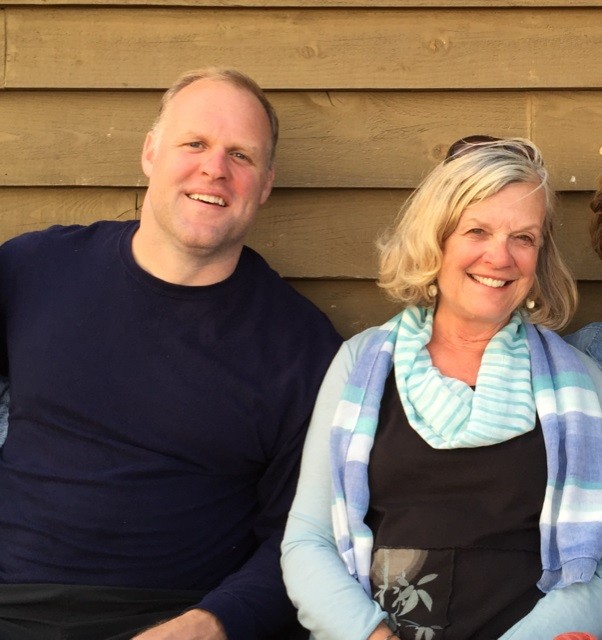
Mary Hobgood now lives in Portland, Maine. Tom Chittick lives there too, but the two are divorced.
From her home, she looks out at "huge white pines and beautiful maple trees." Amidst the "physical beauty" of Maine, where the family lived and vacationed for decades, Mary says she "feels close to Nate in a way that I didn't in LA" where she was living and had planned to retire before his death changed her plans.
"I have two lives. I have my everyday life, and I am able to enjoy things ... In my other life, I am just grieving all the time," she says. "The sadness is so deep I can't describe it. And it's always there."

